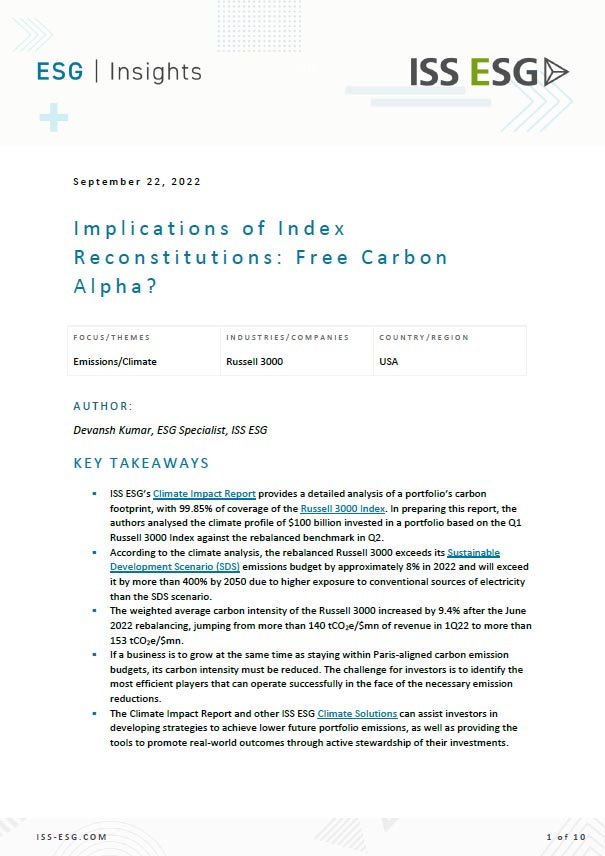
Implications of Index Reconstitutions: Free Carbon Alpha?
SEPTEMBER 22, 2022
KEY TAKEAWAYS
- ISS ESG’s Climate Impact Report provides a detailed analysis of a portfolio’s carbon footprint, with 99.85% of coverage of the Russell 3000 Index. In preparing this report, the authors analysed the climate profile of $100 billion invested in a portfolio based on the Q1 Russell 3000 Index against the rebalanced benchmark in Q2.
- According to the climate analysis, the rebalanced Russell 3000 exceeds its Sustainable Development Scenario (SDS) emissions budget by approximately 8% in 2022 and will exceed it by more than 400% by 2050 due to higher exposure to conventional sources of electricity than the SDS scenario.
- The weighted average carbon intensity of the Russell 3000 increased by 9.4% after the June 2022 rebalancing, jumping from more than 140 tCO2e/$mn of revenue in 1Q22 to more than 153 tCO2e/$mn.
- If a business is to grow at the same time as staying within Paris-aligned carbon emission budgets, its carbon intensity must be reduced. The challenge for investors is to identify the most efficient players that can operate successfully in the face of the necessary emission reductions.
- The Climate Impact Report and other ISS ESG Climate Solutions can assist investors in developing strategies to achieve lower future portfolio emissions, as well as providing the tools to promote real-world outcomes through active stewardship of their investments.



